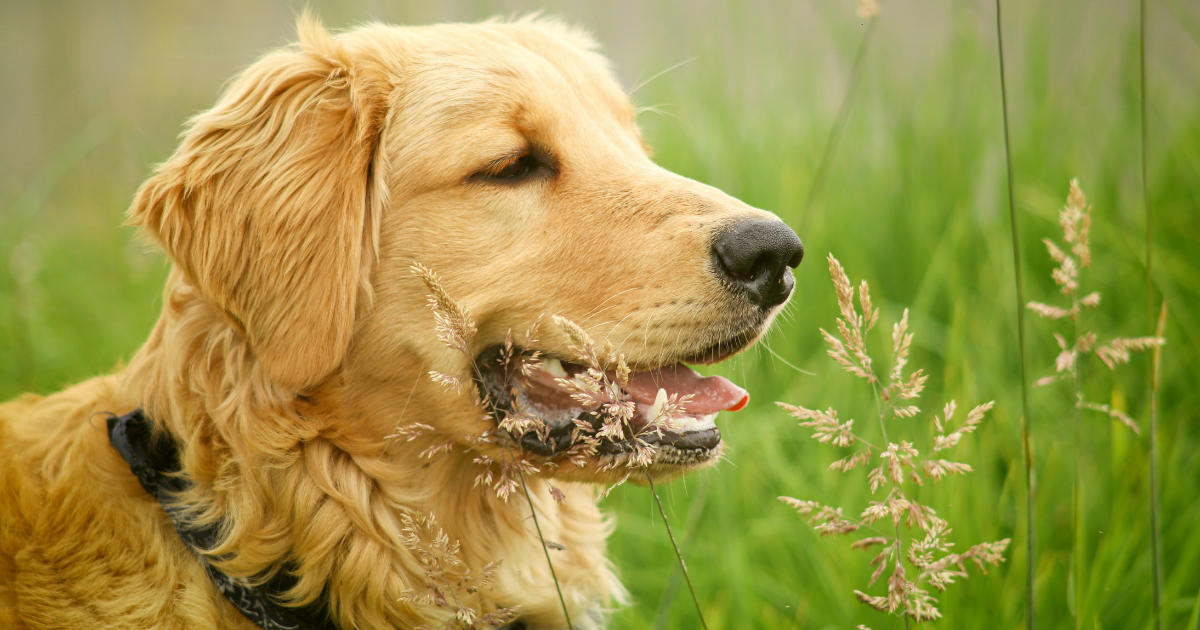Best Dog Foods for Allergies: A Complete Veterinarian-Approved Guide to Relief
Table of Contents
Watching your beloved dog scratch relentlessly, shake their head in discomfort, or struggle with digestive issues is heartbreaking. As a pet parent, you’d do anything to help them feel better – but navigating the overwhelming world of dog food allergies can feel impossible.
If you’re reading this, chances are you’ve tried multiple foods, spent countless hours researching, and still feel lost in a sea of conflicting advice. You’re not alone, and more importantly, there’s hope.
This comprehensive guide will provide you with a clear, step-by-step approach to finding the best dog foods for allergies that actually works. Our vet-recommended dog food for allergies selection process has been written by Dr. Sarah Mitchell, DVM, and reviewed by our expert panel of veterinary nutritionists. This article will help you discover the best dog food for food sensitivities and identify the best dog foods for allergies suited to your furry family member’s specific needs.
Section 1: Understanding Your Dog’s Itch (The ‘Why’)
Before diving into food recommendations, let’s establish exactly what we’re dealing with. Many pet owners use terms like “allergy,” “intolerance,” and “sensitivity” interchangeably, but understanding the differences is crucial for proper treatment.
Allergy vs. Intolerance vs. Sensitivity: What’s the Difference?
| Condition | Definition | Symptoms | Timeline |
|---|---|---|---|
| Food Allergy | Immune system overreaction to specific proteins | Skin irritation, itching, ear infections, digestive upset | Immediate to 24 hours |
| Food Intolerance | Inability to properly digest certain ingredients | Primarily digestive issues, gas, loose stools | 2-72 hours |
| Food Sensitivity | Non-immune reaction causing discomfort | Mild digestive upset, occasional skin issues | Variable |
Common Culprits: The Top Food Allergens for Dogs
Research shows that approximately 10% of all dog allergies are food-related, with these proteins being the most common triggers:
- Beef (34% of food allergies)
- Dairy products (17% of food allergies)
- Chicken (15% of food allergies)
- Wheat (13% of food allergies)
- Egg (11% of food allergies)
- Corn (7% of food allergies)
- Soy (6% of food allergies)
Note: Contrary to popular belief, grains are not the primary culprit in most dog food allergies – animal proteins are the main offenders.
Symptoms Checklist: Is Your Dog Suffering from Food Allergies?
Skin-Related Symptoms:
- Persistent scratching or licking
- Red, inflamed skin
- Hot spots or raw patches
- Hair loss from excessive scratching
- Chronic ear infections with dark, waxy discharge
Digestive Symptoms:
- Chronic diarrhea or loose stools
- Frequent vomiting
- Excessive gas
- Changes in appetite
- Abdominal discomfort
Behavioral Changes:
- Increased restlessness
- Difficulty sleeping due to itching
- Reluctance to eat
- General irritability

The Only True Diagnosis: Veterinarian-Guided Elimination Diet
Here’s the truth that many pet food companies won’t tell you: blood and saliva allergy tests for dogs are notoriously unreliable. The gold standard for diagnosing food allergies remains a veterinarian-supervised elimination diet lasting 8-12 weeks.
This process involves feeding your dog a diet containing only ingredients they’ve never eaten before, then systematically reintroducing potential allergens to identify the specific trigger.
Section 2: Decoding Dog Food for Allergies (The ‘What’)
Understanding your options is crucial before making any dietary changes. When searching for the best dog foods for allergies, you’ll encounter several categories of specialized diets, each designed to address different aspects of food sensitivities.
Veterinary Therapeutic Diets (The Gold Standard)
Hydrolyzed Protein Diets break down proteins into molecules so small that the immune system can’t recognize them as allergens. These prescription diets are scientifically formulated and clinically tested.
Novel Protein Diets contain protein sources your dog has never encountered, making allergic reactions unlikely. These require a veterinary prescription and careful monitoring.
Top veterinary brands include Hill’s Prescription Diet z/d, Royal Canin Ultamino, and Purina Pro Plan Veterinary Diets HA.
Over-the-Counter Limited Ingredient Diets (LIDs)
These commercial diets feature simplified ingredient lists with single protein sources and minimal additives. However, cross-contamination during manufacturing can be a significant concern with OTC options.
Key consideration: Look for brands with dedicated allergy-friendly manufacturing facilities to minimize cross-contamination risks.
Novel Protein Diets
Novel proteins include unusual meat sources like:
- Kangaroo
- Venison
- Duck
- Rabbit
- Fish (for dogs who haven’t eaten fish before)
These work best for dogs who have developed allergies to common proteins like beef, chicken, or lamb.
Raw/Fresh Food Diets: The Pros and Cons
Advantages:
- Complete ingredient control
- High digestibility
- No processed fillers or artificial additives
- Fresh, whole food ingredients
Disadvantages:
- Risk of bacterial contamination
- Nutritional imbalances without proper formulation
- Time-intensive preparation
- Higher cost
Dr. Mitchell’s note: “While raw diets can be beneficial for some allergic dogs, they must be properly formulated by a veterinary nutritionist to ensure complete and balanced nutrition.”
Section 3: The Best Dog Foods for Allergies – Curated & Categorized
When selecting the best dog foods for allergies, it’s essential to understand that not all allergy-friendly foods are created equal. Our curated list of the best dog foods for allergies has been categorized by specific needs and conditions to help you make the most informed choice.
Best Vet-Prescription Hydrolyzed Protein Foods
Hill’s Prescription Diet z/d
Best For: Confirmed multiple food allergies, severe cases Protein Base: Hydrolyzed chicken liver The Vet’s Take: “My go-to recommendation for dogs with multiple confirmed allergies. The hydrolyzed proteins are so small they’re virtually unrecognizable to the immune system.”
Pros:
- Clinically proven effectiveness
- Single carbohydrate source
- Added skin-supporting nutrients
Cons:
- Requires prescription
- Higher cost
- Some dogs find it less palatable initially
Royal Canin Ultamino
Best For: Dogs with both food allergies and digestive sensitivities Protein Base: Hydrolyzed poultry by-products The Vet’s Take: “Excellent for dogs who need both allergy management and digestive support. The oligosaccharides promote healthy gut bacteria.”
Pros:
- Supports digestive health
- Enhanced palatability
- Comprehensive nutritional profile
Cons:
- Prescription required
- Contains by-products (though hydrolyzed)
- Limited availability
Best Vet-Prescription Novel Protein Foods
Hill’s Prescription Diet d/d Duck & Rice
Best For: Initial elimination trials, single protein allergies Protein Base: Duck The Vet’s Take: “Perfect for starting elimination diets. Duck is rarely encountered in regular dog foods, making it an excellent novel protein choice.”
Best OTC Limited Ingredient Diets (Kibble)
Blue Buffalo Basics Limited Ingredient
Best For: Mild sensitivities, maintenance after successful elimination Protein Base: Various single proteins available The Vet’s Take: “A good stepping stone for dogs transitioning from prescription diets, but monitor carefully for cross-contamination reactions.”
Pros:
- Multiple protein options
- No chicken or beef by-products
- Reasonably priced
Cons:
- Potential for cross-contamination
- Not suitable for severe allergies
- Contains some dogs may react to
Best Fresh/Raw Food for Allergy-Prone Dogs
Darwin’s Natural Pet Products
Best For: Dogs needing fresh, whole food diets Protein Base: Single novel proteins The Vet’s Take: “For motivated owners willing to invest time and money, these fresh diets can be excellent, but proper supplementation is crucial.”
Section 4: The Elimination Diet: A Step-by-Step Action Plan
Week-by-Week Guide
Weeks 1-2: Preparation & Transition
- Consult your veterinarian
- Choose your elimination diet
- Gradually transition over 7 days
- Document all symptoms
Weeks 3-10: Strict Elimination Phase
- Feed ONLY the prescribed diet
- No treats, table scraps, or flavored medications
- Keep a detailed symptom diary
- Take weekly photos of affected areas
Weeks 11-12: Initial Assessment
- Evaluate improvement with your vet
- If symptoms persist, consider a different protein source
- If improved, prepare for challenge phase
Weeks 13+: Challenge Phase (Vet Supervised)
- Systematically reintroduce potential allergens
- Introduce one ingredient at a time
- Wait 2 weeks between new ingredients
- Document any reactions
“Don’t Forget!” Section: Hidden Allergen Sources
- Treats and chews (including “hypoallergenic” ones)
- Flavored medications (heartworm preventatives, supplements)
- Toothpaste and dental chews
- Table scraps (even tiny amounts can trigger reactions)
- Other pets’ food (if accessible)
Section 5: Beyond the Bowl: A Holistic Approach
Managing food allergies isn’t just about changing your dog’s diet – it’s about supporting their overall health and addressing all potential triggers.
Evidence-Based Supplements
Omega-3 Fatty Acids Research shows that EPA and DHA can reduce inflammatory responses in allergic dogs. Recommended dosage: 20-55mg per pound of body weight daily.
Probiotics Specific strains like Lactobacillus and Bifidobacterium can support gut health and immune function. Look for veterinary-formulated products with guaranteed live cultures.
Environmental Allergies: The Often-Overlooked Factor
Up to 60% of dogs with food allergies also have environmental allergies. Common triggers include:
- Pollen (seasonal)
- Dust mites
- Mold spores
- Cleaning products
Working with a veterinary dermatologist can help identify and manage these concurrent conditions.
Grooming & Skin Care Support
Hypoallergenic Shampoos:
- Malaseb (medicated)
- Douxo S3 Calm (soothing)
- Veterinary Formula Clinical Care (anti-itch)
Daily Skin Care:
- Gentle wipes for paws and face
- Moisturizing sprays for dry skin
- Regular brushing to distribute natural oils
Section 6: FAQ – Answered by a Veterinarian
How long does it take for a food allergy to clear up?
Most dogs show improvement within 4-6 weeks of starting an appropriate elimination diet, with full resolution taking 8-12 weeks. However, severe cases may take longer, and some dogs may have permanent skin changes from chronic allergies.
Can my dog suddenly develop an allergy to their food?
Absolutely. Dogs can develop allergies to proteins they’ve eaten for years. In fact, the most common food allergens are ingredients dogs have been exposed to repeatedly. This is why rotating proteins isn’t recommended for allergy prevention – it can actually increase sensitization risk.
Is grain-free better for dog allergies?
This is a persistent myth. Grains cause only about 13% of food allergies in dogs, while animal proteins cause over 65%. In fact, the FDA has identified a potential link between grain-free diets and dilated cardiomyopathy (DCM) in dogs. Unless your dog has a confirmed grain allergy, grain-free isn’t necessary.
Are allergy tests for dogs accurate?
Blood and saliva allergy tests for dogs have poor reliability, with false positive rates as high as 80%. These tests often show “allergies” to foods your dog has never eaten. The elimination diet remains the gold standard for diagnosis.
Can food allergies cause ear infections?
Yes! Food allergies commonly cause chronic ear infections. If your dog has recurring ear problems, especially with dark, waxy discharge and a yeasty smell, food allergies should be investigated.
Should I try an elimination diet on my own?
While you can start with an over-the-counter limited ingredient diet, working with a veterinarian significantly improves your chances of success. They can prescribe truly hypoallergenic diets, help identify hidden allergen sources, and provide proper monitoring throughout the process.
Conclusion: Your Dog’s Path to Comfort
Finding the best dog foods for allergies isn’t just about picking a product off the shelf – it’s about understanding your dog’s unique needs and working systematically to identify their specific triggers. Throughout this guide, we’ve explored various categories of the best dog foods for allergies, from prescription hydrolyzed proteins to novel protein diets.
Remember these key takeaways when selecting the best dog foods for allergies:
- True food allergies require professional diagnosis through elimination diets
- Prescription hydrolyzed and novel protein diets are most effective for severe cases
- Over-the-counter options can work for mild sensitivities but require careful monitoring
- A holistic approach addressing both diet and environment yields the best results
Your dog’s comfort and health are worth the investment of time and resources needed to properly identify and manage their food allergies. With patience, veterinary guidance, and the right vet-recommended dog food for allergies, you can give your furry friend the relief they deserve.


